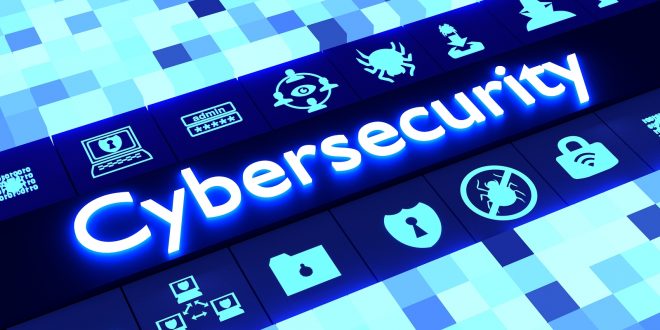Recent research has shown that 68% of high-revenue growth companies have embraced a hybrid model worldwide. With businesses enjoying remote or hybrid working, benefits including reduced maintenance costs, improved flexibility and extended talent pool, cyber security awareness has become more critical than ever.
RELATED: Initiative Online Print: Cybersecurity must be rethought
With this in mind, Indusface is intrigued to find out the most secure countries for businesses to allow their employees to work from, by creating an index score based on cybersecurity data including DDOS attacks, phishing sites, Malware hosting sites and compromised computers. Venky Sundar, Founder and President of Indusface also provided six tips for small businesses on ensuring cyber security.
Key Findings:
- Senegal is named the most cyber-secure African country for businesses to allow their employees to work from, with a cyber security index score of 78.09 out of 100.
- Nigeria ranks second with an index score of 74.68 and the lowest number of compromised computers per 100,000 internet users in all African countries reviewed.
- The most cyber-secure countries in the world are Honduras, South Korea, and Japan.
- Venky Sundar, Founder and President of Indusface provides 6 top tips for cyber security when working remotely.
Top 8 most cyber secure countries in Africa
|
Africa Rank |
Country |
DDOS attacks per 100,000 Internet Users |
Phishing sites per 100,000 urls |
Malware hosting sites per 100,000 urls |
Compromised computers per 100,000 internet users |
Cyber security index score (/100) |
|
1 |
Senegal |
9 |
80 |
1,000 |
1,023 |
78.09 |
|
2 |
Nigeria |
21 |
570 |
970 |
62 |
74.68 |
|
3 |
Egypt |
12 |
150 |
1,030 |
1,622 |
72.85 |
|
4 |
Morocco |
35 |
500 |
1,000 |
1,603 |
66.01 |
|
5 |
Algeria |
17 |
310 |
1,170 |
3,262 |
65.33 |
|
6 |
South Africa |
69 |
940 |
840 |
446 |
62.23 |
|
7 |
Kenya |
600 |
350 |
870 |
620 |
57.38 |
|
8 |
Tunisia |
429 |
310 |
930 |
5,588 |
50.92 |
* Total DDOS Attacks were counted between 2015 to 2021.
**Compromised computers = have been infected with the Gamarue botnetPlease see full methodology below
Indusface found out that Senegal is crowned the most secure African country for businesses to allow employees to remotely work from, with a cyber security score of 78.09 out of 100. The country has the lowest number of DDOS attacks in Africa (9) during 2015 to 2021 as well as the fewest phishing sites per 100,000 urls (80) compared to all other African countries reviewed, making businesses less worried about sensitive information being stolen.
Nigeria ranks second with a cyber security index score of 74.68/100. Contributing to Nigeria’s top ranking is that it has the lowest number of compromised computers per 100,000 internet users (62) among all African countries reviewed. Computers that have been infected with the Gamarue botnet open doors to hackers and make it easier for them to take control of your business data and devices. Nigeria also has the fourth lowest DDOS attacks among all African countries reviewed, with an average of 21 attacks per 100,000 internet users.
With an astonishing average of 5,588 compromised computers per 100,00 internet users, Tunisia ranks as the least cyber-secure African country with a cyber security index score of only 50.92.
Please find the full data including all countries here. Please find images for editorial use here.
Top 5 most cyber secure countries in the world
|
Rank |
Country |
DDOS attacks per 100,000 Internet Users |
Phishing sites per 100,000 urls |
Malware hosting sites per 100,000 urls |
Compromised computers per 100,000 internet users |
Cyber security score (/100) |
|
1 |
Honduras |
40 |
90 |
120 |
413 |
89.55 |
|
2 |
South Korea |
59 |
100 |
560 |
13 |
88.85 |
|
3 |
Japan |
12 |
150 |
730 |
21 |
87.49 |
|
4 |
Costa Rica |
41 |
180 |
270 |
712 |
84.81 |
|
5 |
Guatemala |
112 |
20 |
300 |
516 |
84.47 |
Honduras ranks as the most cyber-secure country for businesses to allow employees to remotely work from, with a total cybersecurity score of only 89.55 out of 100. Contributing to its top ranking is that it is home to one of the lowest average number of DDOS attacks and phishing sites in the world, making businesses more assured of their cyber security.
In second place is South Korea, where there are only 13 compromised computers per 100,000 internet users which aids its overall cyber security score of 88.85/100.
Another East Asian country, Japan ranks third as the most cyber-secure country in the world. With an overall cyber security score of 87.49, the country has the lowest DDOS attacks per 100,000 internet users (12) among the top 5 most secure countries. This is an important factor for businesses to consider as successful DDOS attacks could block your business sites and bring down all servers and connections you depend on.
Please find the full data including all countries here.
Venky Sundar, “Attracting top talent through remote work can revolutionise your business. However, it also leaves your sensitive data and assets vulnerable to hackers. Therefore, it is important to be prepared to address remote work security risks. There are a few points when recruiting talents globally:
“Firstly, you could consider which countries are least targeted by hackers and least risk to your cyber security.
“Secondly, look at regulations that govern data security. For example, GDPR is probably the gold standard when it comes to data security.
“Thirdly, research law enforcement. This indicates how quickly people will be punished when committing cybercrime.
Founder and President of Indusface comments on working remotely across the world:
“Fourthly, get to know the government grants. Cybersecurity grants are provided to SMBs who tend to be more susceptible to attacks.
“Fifthly, the level of cybersecurity awareness in the generation also affects how likely hackers would commit cyber crimes.”
Venky Sundar, Founder and President of Indusface provides six top tips for businesses who apply remote or hybrid working:
“There is no one way to secure remote working but instead you should make remote work access security an integral part of your employee’s ongoing training and workplace culture. Here are eight best practices for secure remote working within your business:
1. Create strong authentication
It starts by identifying the remote worker before a worker can access corporate data and assets. From this, you can build audit trails of the actions against the identity.
2. Update your systems and encrypt your devices
Outdated technology could open doors to hackers with credential information like credit cards being stolen. Cases like this will have a fatal hit on your business’s reputation as well as cyber security. It is highly recommended that all your devices be updated and encrypted with SSL certificates.
3. Conquer internal security risks
Working habits could lead to malware or ransomware attacks that could put your company and your clients at risk. We really recommend hosting full employee training on cyber security and making it fun. You could get your team engaged in the training by setting up phishing email simulators so they could see the potential dangers in action.
4. Avoid weak or duplicate passwords
Many businesses share duplicate passwords for multiple accounts. Research shows hackers rely on weak passwords when brute forcing PoS terminals. Use an automatic password generator to create safe and secure passwords companywide.
5. Only upload files to secure systems
Hackers could upload their own files with malicious code that can be executed directly on your server. Therefore, it is important to avoid storing data in unencrypted storage, leaving data on devices without password protection, and attaching sensitive information directly into an email.
6. Secure web application security
Using a combination of open-source CMS and cloud-based apps increases your remote work risks. It should be considered as part of your security policy to approve web app purchases and free downloads.
Methodology
1. Indusface conducted the following research analysing historical cyber attack data per country to find the most secure countries to work from.
2. Firstly, detected cyber attacks between 2015-2021 were sourced from the Digital Attack Map. The dataset was subsequently cleaned and aggregated by country to find the total number of attacks and the distribution of attacks by attack type.
3. Then, Python data mining tools were used to extract cybersecurity statistics from over 90 Microsoft Security Intelligence reports (2017) resulting in a comprehensive dataset containing the number of phishing sites, malware hosting sites, compromised computers (part of gamarue botnet).
4. Phishing sites and malware hosting sites data collected above was presented on a per 100,000 urls basis, and compromised computers and DDOS attacks were presented per 100,000 internet users.
5. An index score of cyber security score was then computed taking into account the above four factors to assess the favorability of each country as a workation destination.
6. The data was collected in June 2023 and is correct as of then.































